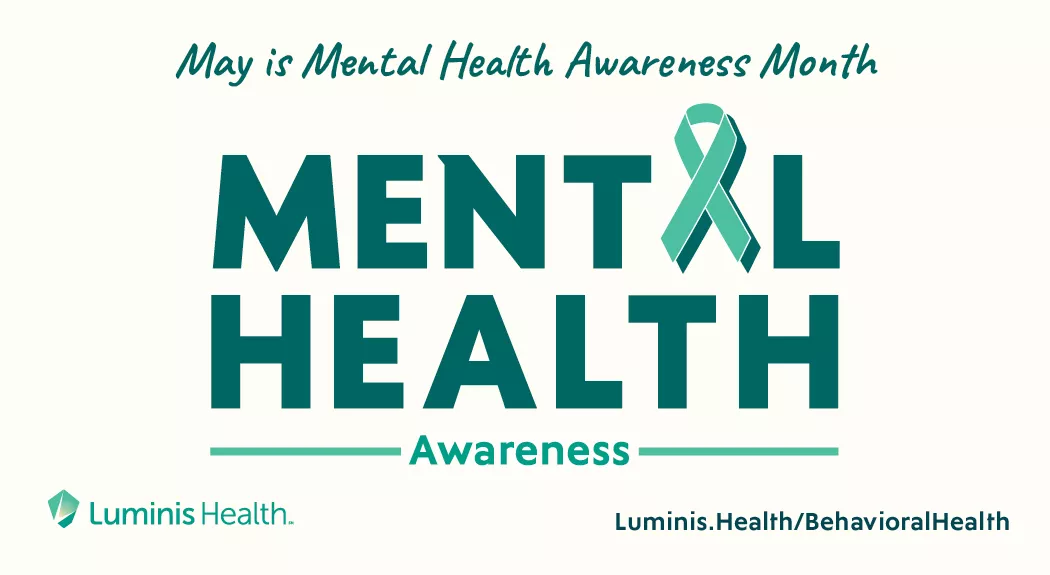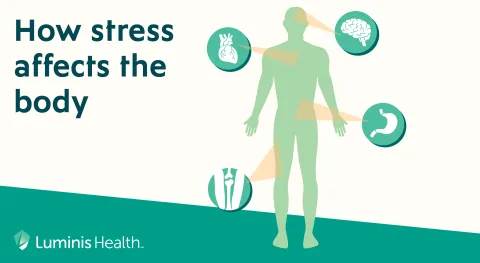
At any age, mental health challenges can arise. While significant focus has been rightly given to mental well-being in younger people, it’s crucial not to overlook our seniors. The National Council on Aging (NCOA) underscores this, revealing that up to 25% of older adults live with mental health issues, like anxiety or depression.
If left untreated, mental health conditions can negatively affect your physical well-being and quality of life. Fortunately, many factors contributing to mental health decline are avoidable. As May marks Mental Health Awareness Month and Older Americans Month, now is an ideal time to implement these five strategies aimed at preserving your mental well-being as you grow older.
1. Nurture/invest social connections
Loneliness and social isolation can significantly increase mental health issues later in life. They can also increase your risk of high blood pressure, heart disease and early death.
These tips can help nurture/invest social connections:
- Stay in touch with friends and family via social media or video chat. Virtual meet-ups can help you feel less alone.
- Volunteer. Giving back to others can help you meet people in your community. It can also provide a sense of purpose that older adults may lose after retirement.
- Get tested and treated for hearing loss. It affects one in three adults aged 65 to 74, according to NCOA. Hearing loss can make it difficult to follow what’s happening around you. It’s a common reason older adults withdraw from social interaction.
2. Get regular physical activity
Sitting for long periods of time and lack of physical activity can increase your risk of depression. Physical activity can boost your mood.
For overall health and well-being, older adults should get at least 150 minutes of moderate-intensity exercise, like brisk walking, each week, or 75 minutes of high-intensity exercise, like running. Talk to your primary care provider and decide what’s best for you. They also need at least two days of strength-building and balance activities, which can be done from the comfort of your home.
The Centers for Disease Control and Prevention recommends multicomponent physical activities to meet these triple goals. Try these:
- Sign up for a dancing class at a local community center for older adults.
- Take up yoga or Tai-chi. There are many online offerings at no cost.
- Explore outdoor activities like gardening or hiking. But remember to stay hydrated.
3. Try music therapy
Listening to or making music seems to activate brain areas that can improve mental and physical health. Research finds that music-based interventions may be helpful for anxiety, depression and chronic pain. Go ahead and play that oldie but goodie!
4. Reduce caregiver stress
Some older adults face the added emotional challenges of caregiving. According to a 2023 AARP Survey, 50% of caregivers said caregiving increased their emotional stress, while 37% said it caused physical stress.
If you’re a caregiver, the Luminis Health Caring for Caregivers page provides self-care tips and local caregiver resources. These can help you care for your loved one while taking care of yourself.
5. Recognize mental health issues
Depression is common in older adults, but it’s not a normal part of aging. Less than half of older adults who struggle with mental health and substance use issues get the treatment they need.
Getting help starts with scheduling regular checkups with your primary care doctor. They can help you manage physical limitations or medical conditions, such as post-stroke or cancer recovery, which may increase your risk of depression. Should you or your loved one experience any of the following symptoms persistently for more than two weeks, it’s crucial to inform your doctor, as they could point to mental health issues:
- Anger or irritability.
- Anxious or sad mood.
- Changes in appetite, mood and energy level.
- Difficulty concentrating, remembering or making decisions.
- Difficulty sleeping or sleeping too much.
- Drug or alcohol misuse.
- Feeling guilty or hopeless.
- Hearing, feeling or seeing things other people don’t.
- Loss of interest in things they once enjoyed, including sex.
Next steps
After ruling out medical causes, your doctor may start treatment for a mental health condition, or refer you to a mental health professional for evaluation and treatment. Mental health problems are often treated with a combination of medication and talk therapy.
You can receive high-quality mental and behavioral health services at The Luminis Health Doctors Community Medical Center Behavioral Health Pavilion on our Lanham campus. You can also call 301-623-4350.



